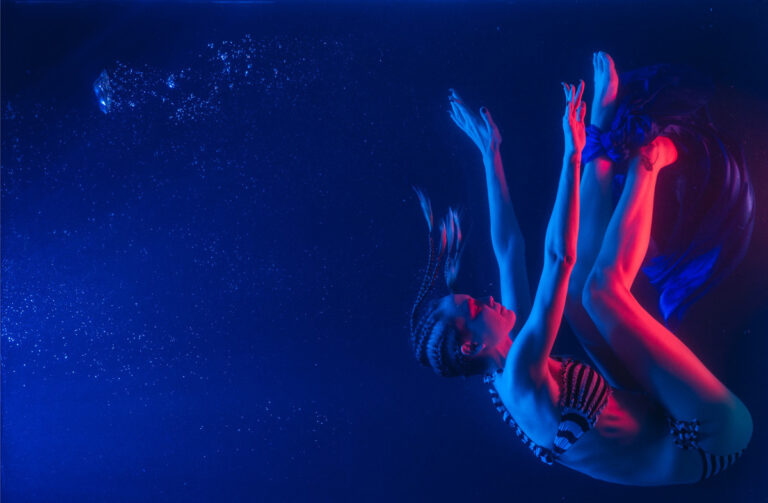Is the era of the BBL blackfish on its last legs?

Blackfishing has permeated through modern (especially celebrity) culture over the last few decades, hitting its peak within the last few years—in fact, there is an infinite number of celebrities who are guilty of it. From accusations against Rita Ora to, more recently, Jesy Nelson’s ‘Boyz’ controversy, blackfishing felt like an inescapable phenomenon.
Led by the experts in the ‘art’—the Kardashians, obviously—the rise in dangerous procedures like the Brazilian Butt Lift (BBL) to co-opt the features of black women have impacted the lives of many. The fastest-growing cosmetic procedure comprises a fat transfer—fat from another part of the body is surgically removed and commonly implanted into the butt. The aestheticising of the features of black women and black culture as a whole, by public figures like the Kardashian family, has pushed those unable to afford such surgeries to cheaper and more dangerous techniques like the ‘slim-thick’ drug Apetamin.
Such procedures have been stringently denied through the years by the KarJenner family despite the very valid criticisms and evidence against them. Therein lies the problem: deniability. Refusing to be open and honest about their methods as well as their absolute refusal to account for the claims of cultural appropriation (from which they have profited) is criminal. Who can forget Khloé Kardashian’s infamously terrible statement shared with Jay Shetty, “I can’t stand people that are like eating a bucket of Häagen-Dazs ice cream and they are like ‘I am so fat’ and they won’t work out, they won’t change their diet, they won’t drink more water.” To make light of people unable to change their bodies, while such people are able to do so with the click of a Facetune button is laughable, to put it mildly.
Now, there seems to be a shift in the air, as eagle-eyed TikTok users noted a possible scaling back of what we know as the modern-day blackface. The days of the BBL appear to be numbered and while that may mean a positive easing back on the influence of dangerous surgery, the damage has still been done. It indicates two prevailing issues: first, the commodification of the black female body for costume and profit and second, the trending of body types or features.
@hannahkosh ♬ original sound - Hannah
Let’s address the first. There are speculations surfacing that those guilty of such practices, namely Khloé and Kim Kardashian, are having reversals or removals of previous surgeries. The dramatic change in appearance (regardless of the actual proven method) still showcases a shift in aesthetics because that’s what blackness is in celebrity culture—an aesthetic. Black culture is out and manic pixie dream boy culture is in. And just like that, the tan fades, the Bantu Knots unravel and the accents change as cosplaying black women is no longer the ‘in’ thing.
Black culture and its aesthetics have often been used in the advancement of a person’s career and once a level of success has been reached, it conveniently falls away—take Awkwafina’s controversial disappearance of her ‘blaccent’. Other examples as listed by Screen Shot on Instagram detail additional celebrity examples like Ariana Grande’s diminishing tan and Miley Cyrus’ comments on hip hop after appropriating the genre.
The second issue, the disappearing BBL, highlights the objectification and trending of female-presenting body types although, of course, we know this not to be new. Much like the trend of the moment, we find ourselves—our actual bodies—as trending products. The historical list is obscenely endless. The replacing of the era of the BBL appears to be tied to the Y2K revival and it’s not as innocent as bicep bracelets.
Twenty years later and low-rise jeans are back with a trending vengeance for the return of the flat stomach. Coming right alongside it is the inescapable thigh gap. And when we aren’t resurrecting old ones, we invent new toxic ones like the ‘BBL body’, the bikini bridge trend and the ‘clean look’. Like House of Sunny’s Hockney dress, we’re worn by supermodels one minute and in charity shops the next. Or more specifically and importantly, black bodies are worn by celebrities one minute and then conveniently shed the next.
The body-positive movement’s brief moment in popular culture was just that—brief. Rather than doing away with trends and actually altering our bodies to them, we could just exist as we are regardless of our body type. What the Kardashians may be doing is reinforcing this idea. Morphing ourselves each and every time a new aesthetic arises. While the BBL trend is beginning its decline, we are reminded that what’s left is merely a vacuum that will soon be filled by the next toxic ideal.




